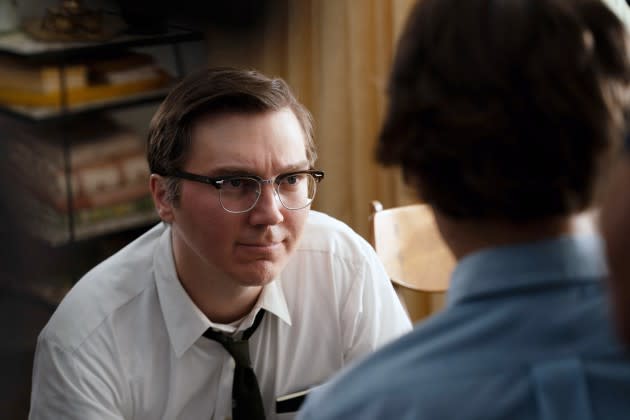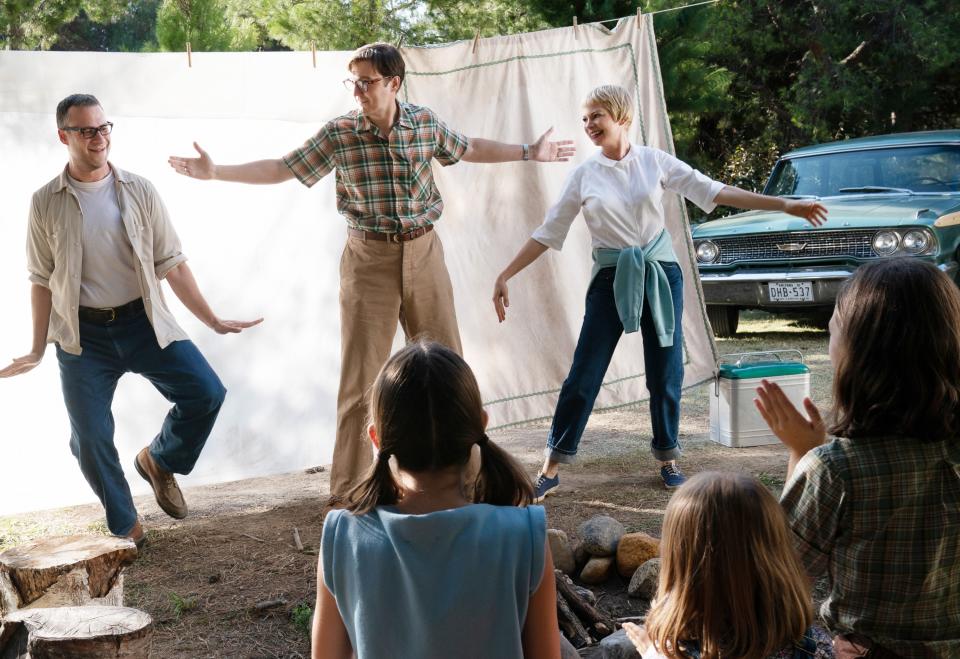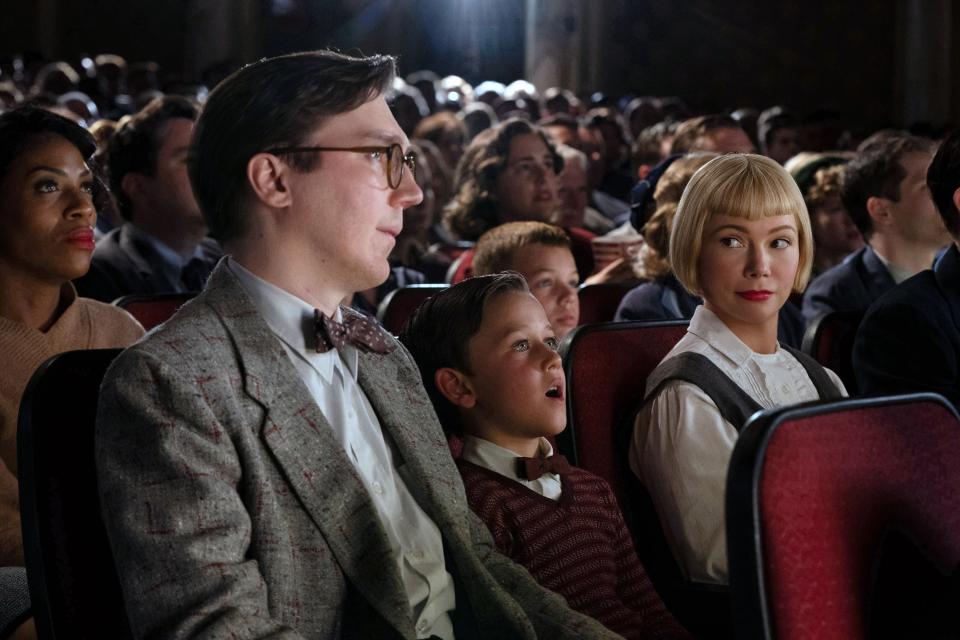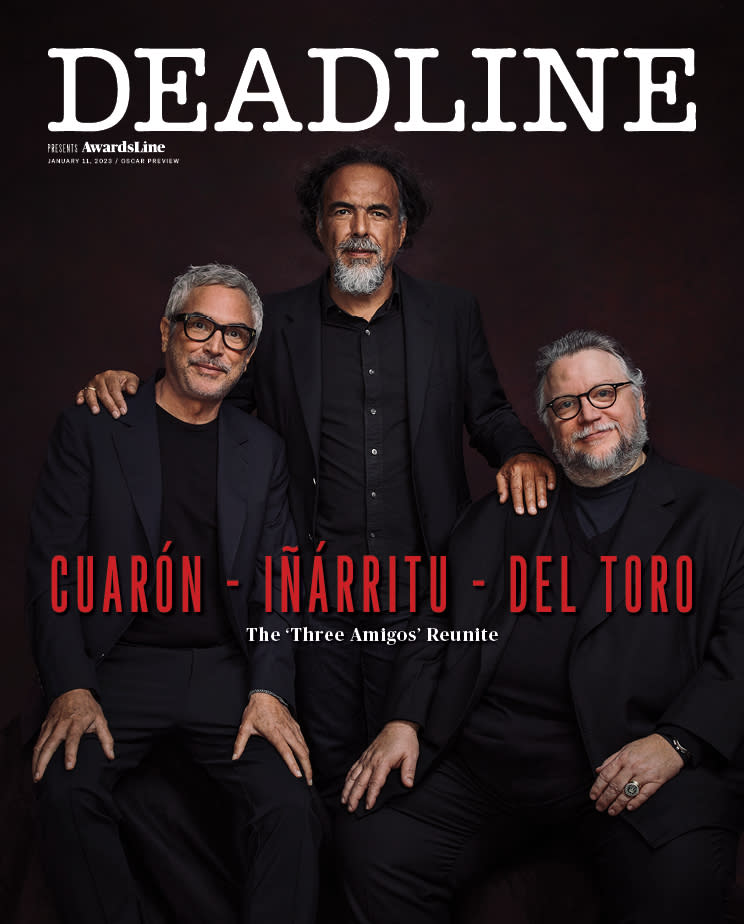‘The Fabelmans’ Star Paul Dano On The Emotional Journey He Took To Portray A Fictional Version Of Steven Spielberg’s Father
- Oops!Something went wrong.Please try again later.
- Oops!Something went wrong.Please try again later.
- Oops!Something went wrong.Please try again later.

Paul Dano The Fabelmans star reveals the emotional connections he made in portraying a version of Steven Spielberg’s father
Steven Spielberg’s The Fabelmans is a semi-autobiographical account of the director’s upbringing, co-written with Tony Kushner. It’s a deeply personal film following Sammy — a proxy for the young Spielberg — a Jewish American boy who, after discovering a shocking family secret, uses his filmmaking dreams to explore the truth about himself and the world around him via the power of movies. In the film, Paul Dano plays Sammy’s father, Burt Fabelman, the fictional version of Spielberg’s father Arnold, a groundbreaking electrical engineer. Here, Dano reveals his deep research and close work with the director to capture the true essence of a life well-lived.
More from Deadline
DEADLINE: Steven Spielberg reached out to you personally about the possibility of playing his father in The Fabelmans. How did that go?
PAUL DANO: During the pandemic, I got a text saying, “Steven Spielberg wants to meet with you,” which is not a text you’re expecting on your average day. It was nice to receive, but I was nervous about meeting him because I knew nothing about this movie. I looked up ‘unmade Steven Spielberg films’ to try and guess what he was making. Then we met on Zoom, and he was really easy to talk to, which I was surprised by. I think sometimes we project onto people who are that culturally iconic, but he was very open to me and emotionally available and intuitive. He told me what this film was going to be about, and I had this immense feeling. In terms of what I saw in his eyes, his father had passed about eight months before we first spoke, and it was hard for me to process that in real-time. But once he told me about the idea, I felt very strongly about the project in terms of how I might meet the material, what I might have to offer, and how it resonates with me. And so we had a lovely conversation, and I felt great about our Zoom. Then I read the script, which I thought was beautiful, right from the first sentence describing the family waiting in line for the movie. And Steven and I talked again, and we both took notes with each other like our first little work session. And on the third Zoom, which was just Steven with an unlit cigar in his mouth, he said, “I think you’ll make my dad proud.” And then we officially started.
DEADLINE: Was it the easiest audition process that you’ve ever had to go through?
DANO: No, because I really felt strongly about this part. I thought once I had spoken to him and he had said what it was, I just really — it’s strange to say this about somebody who’s one of the great film artists of all time — felt like this is such an important film for Steven. And wanting to be a part of this felt so exciting; waiting was hard. But I’m thankful, and yeah, the fact that I didn’t have to audition is lovely.
DEADLINE: There’s a lot of discourse about how Burt’s personality could be interpreted as passive, especially in how he handles the affair between Mitzi and his best friend, Benny. It’s interesting that Burt and Sammy don’t ever confront each other about Mitzi, either. How did you interpret Burt’s position as a family man yourself?
DANO: I always felt like he was somebody who felt deeply but didn’t always know how to express it. I also think he felt like he probably had to contain his own feelings because of what was going on in the family. So, I always looked at this as Mitzi and Sammy were the storm, and Burt was the grounding to that storm. And I think it’s some combination of not being able to see or acknowledge or face the truth while also knowing and trying to contain it for the sake of his family. And ultimately, he does fall on his sword. Like, in the divorce scene, he tries to say that it is his decision; it’s not their mom’s fault. And it certainly wasn’t, but I think he was doing that for the sake of his family, and I think he did that because he still loved Mitzi.

DEADLINE: What notes did Spielberg give you that helped influence your portrayal of Burt?
DANO: Steven and I spent quite some time talking about Arnold and Burt because it was Burt that I would be playing, ultimately. And the closer we got to filming, the more memories Steven was having. There would be ideas on the day on set, a memory, a gesture, or a word that he’d suddenly want to explore. One of the most important things for me was hearing a recording of Arnold talking about electronics being a way of life for him. He talked about a crystal radio he built when he was a kid; from then on, he was hooked on electronics. It was so much like Steven in the sense that movies are a way of life for him. Steven saw a movie and took a camera and that was it. I always saw this wonderful parallel there, which said so much about Arnold with the way his brain worked through engineering and electronics, much in the way that I think Steven works through movies.
We all had so many incredible resources on set, like, Steven’s family archives had 8mm footage that he shot as a kid, his family photographs and home video. And Arnold was an important figure in the world of computer engineering, so there’s a lot of information about him that you can find. He also served in World War II, and there was some long interview he’d done talking to veterans, so there was just a lot of take-in. I had to ask myself, ‘How do I take this and put it through Burt?’ because I couldn’t take everything in addition to the beautiful script. And on top of that, I don’t look much like Arnold at all. But I noticed that his center of energy was in a different place than mine. So, looking at his trunk, for example, in a photo, I had the costume designer make me a weight belt that I wore just for the first week to help center my gravity lower. He just had a sturdier feeling connected to the ground. So, I loved having the inspiration of a real person. It’s really fun in a way to have all of that run through you [as an actor] as well, meaning I was letting Arnold into my life but letting Burt lead the way. I loved doing something similar for Love & Mercy, where I played Brian Wilson; there’s something so spiritual about it, weirdly.
DEADLINE: What was the most challenging scene for you?
DANO: Well, there were many challenging scenes. I mean, certainly, the balance of what he sees and does not see between Mitzi and Benny because I think Steven was asking himself that as well. Meaning, as a kid, he couldn’t see it, but as an adult, you kind of realize, ‘Oh sh*t.’ But there were days like the divorce scene I talked about. Spending your day doing that? That’s a big scary day. I will say my favorite day was Burt’s last scene in the film because we shot that on the one-year anniversary of Arnold’s passing. And it felt like a good special day to film such a beautiful scene, hopefully, for Steven, too. Every day felt like a big day on a film like this. Every scene mattered and every scene had its own challenge.

DEADLINE: Throughout the film, Burt insinuates that Sammy’s passion for making movies should take the backburner to something more practical. How much do you relate to Sammy in that way? When did you start to take yourself seriously as an artist?
DANO: My parents supported my acting, but I think I’ve always been a bit more of a tortoise than a hare. I remember being young and having that desire to succeed. I remember going to audition after audition and what it felt like to get or not get a part. And I remember getting my first break and then that second break. I remember the hustling and meeting other young actors in these audition rooms. And it’s such a strange business as an actor because you’re freelance, especially when starting out, and you don’t have anything to do other than just constantly putting yourself out there. I remember being at my desk when I was around 18 and just being very casual, like, ‘F*ck. I really think I’ve got to do this.’ But I’ve had resistance to the idea before in myself, where I constantly asked, ‘Can I do this? Can you keep putting yourself through this?’ Because there’s a part of me that loves it, but I think it’s hard too. And every two or three years, I ask myself why I’m doing this, and I always re-choose to do it. And it’s incredible that so many people do it, and I certainly feel fortunate that I’m getting to do it now in a way that I want to and that I feel really good about. I would say I’m still letting myself become the artist I hopefully want to be. And I think it took time, even though I started young. But that’s the journey. I’m sure everybody is different in how they come into themselves. But I think it’s one of the major parts of, well, probably any line of work, but really just becoming an adult is how you grow into yourself, how you accept yourself and be yourself. Because I think that’s where your best work will likely come from.
DEADLINE: Having now worked with such esteemed directors and in such a wide variety of genres, these days how do you choose what films and roles you sign up for? What exactly wins the Paul Dano stamp of approval?

DANO: Well, I never know what I want to do next until it comes. So, the example of going from The Batman to The Fabelmans is just that I feel so lucky that I would get to do something so different. And it’s what made me excited about acting when I was young and watching other actors. Like, watching Kramer vs. Kramer and Midnight Cowboy and seeing [Dustin Hoffman’s performances in both], that for me is the magic trick. It’s like, ‘Wow, you made me believe. And then you made me believe again in a very different context.’ And speaking of Sammy and what The Fabelmans is about, it was seeing actors who could take you somewhere that felt like a character, a world, and a life. And that was a big goal with this one for me playing Burt. It was just, how do I capture a life lived? So, I love collaborating. You’re putting yourself in the hands of your director, the writer and the editor. And as an actor, hopefully, you’re lucky enough to be in a good group of people, which certainly makes the job better and easier. I also love when I can believe in the final product because I don’t just do this for me; I need to believe in what we’re all making as well. I hope I’ll get to continue to shake it up and follow the scent.
Best of Deadline
2022-23 Awards Season Calendar - Dates For The Oscars, Grammys, Guilds & More
TV Cancellations Photo Gallery: Series Ending In 2023 & Beyond
Hollywood & Media Deaths In 2023: Photo Gallery & Obituaries
Sign up for Deadline's Newsletter. For the latest news, follow us on Facebook, Twitter, and Instagram.

